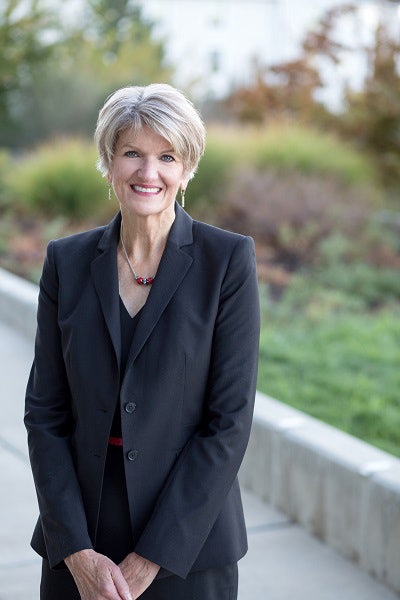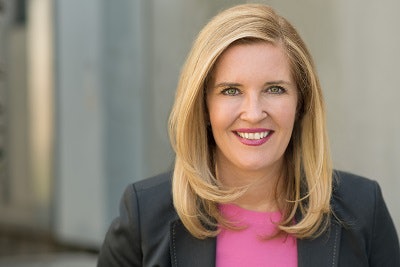The World Health Organization (WHO) has declared 2020 “The Year of the Nurse and the Midwife” (YNM) in an international effort to draw attention to the growing need for the health professionals “who devote their lives to caring for mothers and children, giving lifesaving immunizations and health advice, looking after older people and generally meeting everyday essential health needs.”
WHO, which directs and coordinates international health within the United Nations system, is calling upon healthcare organizations and institutions to join its yearlong campaign. In response, the American College of Nurse-Midwives (ACNM) and its affiliate, the Accreditation Commission for Midwifery Education (ACME), have announced 14 activities for 2020 YNM, including reaching out to high school students, celebrating the role of male nurse-midwives and developing initiatives to increase diversity and address maternal health inequities.
In its 2019 Midwifery Education Trends Report, ACNM/ACME points out that U.S. maternal mortality rates are higher than in many other developed countries and have been rising. From 1991 to 2014, the U.S. mortality rate more than doubled from 10.3 per 100,00 live births to 23.8.
The report also notes significant ethnic disparities among maternal mortality
 Dr. Barbara Wilson
Dr. Barbara Wilsonrates, adding that non-Hispanic Black women experience maternal deaths at a rate three to four times higher than that of non-Hispanic White women. In addition, Hispanic, American Indian and Alaska Native women are two to three times more likely to die from pregnancy-related causes than non-Hispanic White women, according to the report.
“America has poor outcomes for the amount of money we spend on maternal healthcare, and we have a crisis on our hands with a shortage of maternal healthcare providers,” ACME executive director Heather Maurer tells Diverse. “We have women in our country who have no maternal healthcare provider, who are not getting prenatal care, not screened and some are on the verge of serious health concerns that could be prevented or treated with proper maternal healthcare. We know midwifery care is an effective solution with great outcomes and client satisfaction.”
Maurer suggests that addressing the need for diversity in both midwifery education and practice is a key part of her organization’s strategies for the future.
“Numerous studies and articles have found that women who receive care from providers who look like them or come from the same cultural background have better outcomes,” Maurer says.
Research Supports Diversity Initiatives
A pivotal article published in the Journal of Midwifery & Women’s Health in 2016 examined seven studies that explored the experiences of patients and providers. Titled “The Impact of Racism and Midwifery’s Lack of Racial Diversity: A Literature Review,” the article found that racism is common in midwifery education, professional organizations and clinical practices.
“Racism and midwifery’s lack of racial diversity act as a barrier to people of color completing midwifery education programs and fully participating in midwifery professional organizations,” the article stated. The literature prompted action among educators in the field.
“[ACNM and ACME] are committed to increasing the number of midwifery students from diverse backgrounds and to enhancing the diversity of the midwifery workforce,” the organizations’ Trends Report states, adding that their plans include identifying barriers that may be impeding diversity of the student population. ACNM recently published new criteria “that was revised through a diversity and racial equity lens to promote the diversity of midwifery students.”
Advances in distance learning for midwifery programs are also seen as a remedy for the shortage of maternal healthcare providers, the report states. As of 2018, 21% of ACME-accredited midwifery programs were distance programs, 45% were hybrid classroom/distance programs and 34% were classroom-based programs using web-based technology.
The doctoral Nurse Midwifery track at the University of Utah is among those offering distance education. A synchronous distance option is available for students living 60 or more miles from the campus.
 Dr. Heather Maurer
Dr. Heather Maurer“They can attend our program remotely for their didactic portion,” says Dr. Barbara L. Wilson, interim dean and associate professor of the University of Utah College of Nursing. “We are believers in educating in place. . . and we will send faculty to where they are for the clinical part of their experience.” She says interactive videoconferencing allows students to attend the classes live by removing the barriers of distance and location.
While the Utah program is one of the nation’s oldest accredited nurse-midwifery programs, the University of Pittsburgh’s is one of the newest, just three years old, having graduated its first cohort last spring. Both are among 37 ACME-accredited and pre-accredited nurse-midwifery programs, and both grant a doctor of nursing practice (DNP) degree.
“We were approached by the health system (UPMC) because of workforce needs in obstetrical care,” said Dr. Jacqueline Dunbar-Jacob, dean of nursing and the Distinguished Service Professor of Nursing at the University of Pittsburgh, explaining how the nurse-midwife major in the DNP program began. “The research literature has shown over time very good pregnancy outcomes when women are cared for during their pregnancies and delivery and followed in the postpartum period by a nurse-midwife.”
Addressing the Need
Although the number of programs has remained between 37 and 39 since 2010, the ACMN/ACME report points out that the number of graduates from midwifery education programs has increased in recent years from 583 in 2014 to 683 in 2018. However, that increase is not considered sufficient to address the maternal health care shortage America faces.
According to the Bureau of Labor Statistics, the overall employment of nurse midwives is projected to grow by 26% between 2018 and 2028, much faster than the average for all occupations. As of May 2018, the Bureau reported the mean annual wage of a certified nurse-midwife at $103,774.
ACME and ACNM in their report are urging stakeholders to take action to support the growth and development of new midwifery education programs for certified nurse-midwives and certified midwives in the U.S., insisting, “We need to invest in the midwifery workforce. We must create more ACME-accredited midwifery education programs and graduate more certified nurse-midwives and certified midwives.”
As the Year of the Nurse and the Midwife is celebrated around the world, the United States is scrambling to combat its maternity healthcare provider shortage. With additional federal funding approved through bipartisan legislation in December, several provisions are slated to benefit midwives and midwifery education, including scholarships for disadvantaged students.
“Of the 29 counties in Utah, 25 of them are considered rural or frontier,” Dunbar-Jacob says, explaining the vital work many of her graduates are doing throughout the state and elsewhere. “Getting midwives to these areas is absolutely critical to providing health care for women and their families who live there.”
This article appeared in the Feb. 20, 2020 edition of Diverse.















